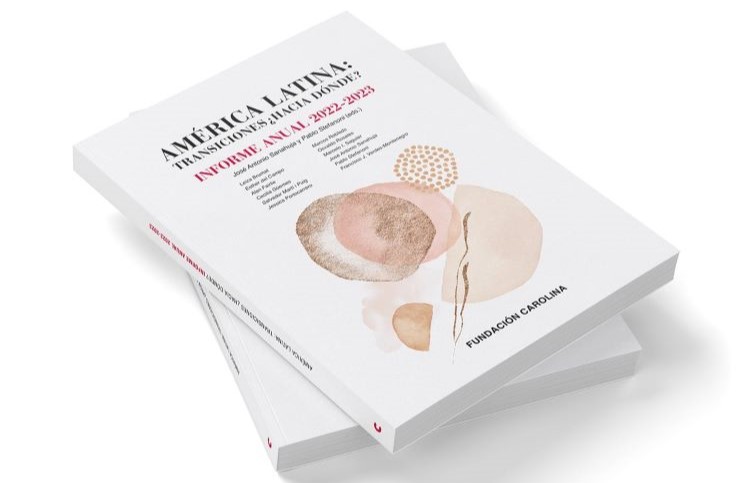The Diplomat
The annual report of the Fundación Carolina, presented last week, warns that Latin American democracies are going through a process of “fatigue” and disappointment due to the lack of social improvements in a subcontinent that was the region of the world most affected by the pandemic and that is facing a new socioeconomic crisis due to the growing geopolitical competition.
The document Latin America: Transitions: Where to?, prepared by renowned specialists from the Ibero-American world and edited by José Antonio Sanahuja, director of Fundación Carolina, and Pablo Stefanoni, editor-in-chief of the magazine Nueva Sociedad and associate researcher at Fundación Carolina, addresses the current reality of Latin America and its socioeconomic, cultural and political processes “at a time when the region is torn between frustration and hope”.
The report attempts to answer the question of “where Latin America is heading, in a context of renewed uncertainty, especially after the Russian invasion of Ukraine, which has deepened phenomena such as inflation and the energy crisis”, and in a scenario of “setbacks in regional integration processes”, new waves of migration (especially Venezuelan) and the expansion of organized crime and violence against various forms of activism.
According to the report, “the COVID-19 pandemic arrived in a Latin America that was undergoing broad transformations and experiencing visible social tensions, some long-standing, others more recent.” Between 2019 and 2020, “these tensions were expressed in a new wave of protests that would end up influencing, and in part redrawing, the regional political map,” the study continues. Besides, the processes of poverty reduction, expansion of the middle classes and the expectations of social advancement and access to consumption “have been largely truncated” and, as a consequence, “the levels of interpersonal trust and trust in institutions remain very low and the ruling parties have been impacted by the punishment vote of the electorate”.
“As several of those governments were located from the center-right to the right”, this has made possible an electoral revival of progressivism, so that “the turn to the right, which appeared as a possibility in 2016, finally did not materialize as a regional phenomenon and, after several victories at the polls, today progressivism controls the main economies of the region, especially after the victory of Luiz Inácio Lula da Silva in Brazil in October 2022″.
As if that were not enough, this whole scenario has been complicated by the consequences of the war in Ukraine. “If Donald Trump’s challenges to the international liberal order had already provoked several shocks to that order, Vladimir Putin’s decision to invade his neighbor introduced new elements of crisis on a global scale,” the study highlights.
Consequently, the report “analyzes where Latin America is heading in a global conjuncture of crisis and growing geopolitical competition”. “After being the region of the world most affected by the pandemic, Latin America is facing a new socioeconomic crisis that finds its democracies ‘fatigued’ and disappointed by the absence of social improvements,” the report warns. “This is a discontent that erodes electoral hegemonies, and increases the volatility of the vote in a scenario of weakening political elites,” the report continues.
In addition, Latin America faces major obstacles to the eventual resurgence of its integration. However, according to the Report, the next EU-CELAC Summit, framed within the Spanish presidency of the Council of the EU in the second half of 2023, “may provide an opportunity to relaunch political dialogue and bi-regional cooperation on social cohesion, productive change and ecological transition, and contribute from both continents to relaunch multilateralism”.







